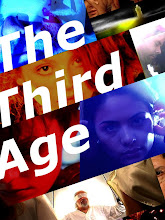The X-Files: Season One Reflections
Over the past few weeks, I’ve been rewatching The X-Files, up through “Eve” now. The series was my favorite show when it was on, and the first TV show I really got into. However, the past two seasons really soured me on it, and obscured a lot of the good stuff that had come before. Watching it today, after seeing shows that were much more consistently successful, I think it’s a little easier to accept the show’s flaws and just appreciate it for what it is.
The show’s greatest strength, from start to finish, was the incredible chemistry between Mulder and Scully. Pretty much any episode with the two of them together has at least a couple of moments of interest. “The Jersey Devil” has a main plot that’s frankly embarrassing, but the subplot with Scully going on a date, and Mulder’s implicit jealousy, makes it worth watching. Late in the series, people might have gotten mad about their romantic entanglement, but right from the start, the show is a story of these two people who have only each other and their work. An interesting story to do would have been an alternate timeline where Mulder never met Scully and wound up either arrested or insane. Scully is his anchor, keeping him from drifting off, and Mulder helps pull her out of a narrow minded acceptance of the system into new ideas and concepts.
The series has an overarching central narrative, but that’s not in place in season one. So, the ongoing narrative arc is the strengthening of Mulder and Scully’s relationship. An episode like “Ice” tells a strong standalone story, but the scene that lingers is the moment where Scully checks Mulder for bugs. I skipped over a couple episodes that I remember as being bad, but through the episodes I watched, there is a clear progression in their relationship.
After 9/11, people said that the government conspiracy ethos of The X-Files was no longer relevant, that the government was good then. Obviously, it wasn’t, and watching the show today, trust no one is more apt than ever. I think a lot of people have issues understanding the way that genre and reality interact, particularly with sci-fi. There’s this feeling that a movie like Good Night and Good Luck can say a lot about our world, but a sci-fi show or comic can’t. For me, genre magnifies the conflicts inherent in reality, and gives us a better understanding of the stakes.
Take a look at Jack Kirby’s brilliant Glorious Godfrey story in The Forever People. That’s a powerful condemnation of the fascistic qualities of the religious right, but most people would just view it as goofy seventies comics. In the same way, I think it’s easy to dismiss the delusional military personnel and omnipresent men in black as relics of 90s paranoid culture. But, the emphasis on an ephemeral truth is perfectly analogous with what Bush has done to our world. Aliens might not be involved, but his government has covered up the truth whenever possible. Who knows what they’re doing that we haven’t heard about yet?
But, reality has shown things in a slightly different light than what the series reveals. Here, the truth is seen as something that can save people if they just find out about it. It’s a weapon that can be used against the government conspiracy. However, what reality shows is that people don’t care about the truth, we can hear about Guantanimo Bay, but we’re so powerless to do anything about it, caring about it seems almost counterproductive. Beyond that, we’ve got presidential candidates actually saying that the torture done there should be continued! That is so hard for me to believe, but Bush has shaped an us vs. them reality and created a war that can never be won. It’s a real tragedy, he has warped the truth, the very weapon that here is Mulder’s salvation.
Yes, there’s an element of quaintness when Max Fennig pops up talking about the JFK assassination. Notably, society has completely marginalized 9/11 conspiracy theory. I’m not saying that Bush attacked the towers, but I don’t think it’s so absurd to not be discussed at all, considering the attack allowed him to enact all the policy he wanted to. But, in this case, the origin of 9/11 is less important than what he did in its wake, and that’s just as evil, if not more so, as the act itself.
I always loved the government conspiracy stuff more than anything else on the series, and it’s those episodes that still resonate. The Litchfield Experiment in “Eve” is fascinating, and believable. “Fallen Angel” is another strong episode, a prototype for the larger mythology episodes to come. I really want to get to those classic mytharc two parters, but for now, I’m just enjoying the standalone stories. The show could have been so much more if guided by someone like Joss Whedon or David Simon, but as is, it’s still consistently enjoyable and frequently thought provoking. At its best, the series is as good as anything that ever aired on TV. But, it was rarely at its best, and certainly wasn’t there in these early season one episodes.




No comments:
Post a Comment